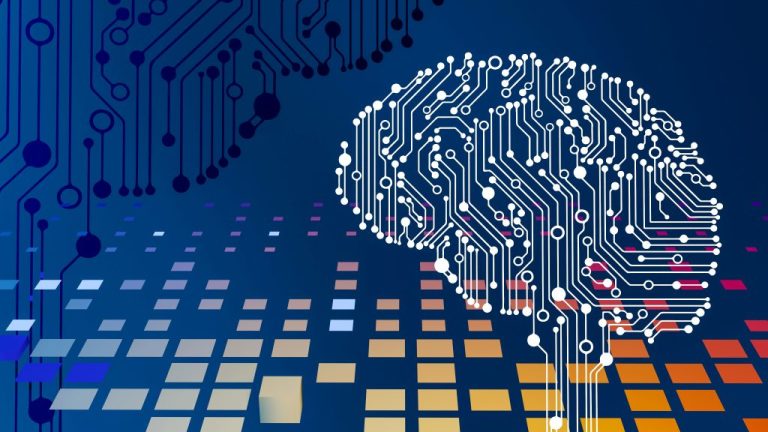Amazon Unveils 980 Million Parameter LLM Featuring Breakthrough Emergent Abilities
Amazon Develops LLM with “Emergent Abilities”
Researchers at Amazon have successfully trained a large language model (LLM) for text-to-speech, which they assert demonstrates “emergent” competencies. Named BASE TTS, this model boasts 980 million parameters, making it the most expansive text-to-speech model to date.
To explore the potential enhancements that models can achieve as they increase in size, the team trained various models on up to 100,000 hours of public domain speech data. Their medium-sized 400 million parameter version, trained on 10,000 hours of audio, showcased notable improvements in versatility and robustness when handling complex test sentences.
These test sentences included challenging features such as compound nouns, emotional tones, foreign terms, and punctuation—elements that frequently disrupt standard text-to-speech systems. Although BASE TTS did not flawlessly process these features, it significantly reduced errors in aspects like stress, intonation, and pronunciation compared to existing models.
The researchers pointed out, “These sentences are intentionally designed to present challenging tasks—none of which BASE TTS has been explicitly trained for.” Interestingly, they noted that the largest model, despite its enhanced parameters, did not display further capabilities beyond those found in the 400 million parameter version. This indicates that while the experimental process is promising, there are still optimal model sizes yet to be determined for achieving emergent abilities.
Additionally, BASE TTS is engineered to be lightweight and streamable, efficiently separating emotional and prosodic data. This feature may enable the transmission of natural-sounding spoken audio even over low-bandwidth connections.
The complete research paper on BASE TTS can be accessed on arXiv.
For insights on AI and big data from industry professionals, consider attending the AI & Big Data Expo, which will take place across Amsterdam, California, and London, featuring co-located events like BlockX and Cyber Security & Cloud Expo.
The AI blockchain is a growing topic of interest, yet many struggle to grasp its true essence. Essentially, it’s an innovative combination of artificial intelligence (AI) and blockchain technology, designed to enhance transparency, decentralization, and efficiency across various sectors.
By leveraging the capabilities of AI, blockchain can offer smarter and more automated processes. This integration improves data integrity by ensuring that transactions are securely recorded and immutable. The decentralized nature of blockchain further ensures that power isn’t concentrated in a single entity, thus enhancing trust among users.
In recent news, major tech companies are making strides in this arena. Apple recently opened its core AI model to developers, indicating a strategic commitment to expanding AI applications. Meanwhile, Reddit has initiated legal action against Anthropic for allegedly utilizing user data without consent to train AI models. Additionally, TSMC reported unprecedented demand for AI chips, which signals a booming market in response to both technological advancements and trade uncertainties.
As industries continue to explore the potential of AI blockchain, we can expect transformative changes that will redefine operational frameworks across technology, finance, health, and more. The synergy of these two technologies promises to create innovative solutions to existing challenges, paving the way for a more efficient and equitable future.
Machine Learning and Cloud-Native Container Security
Machine learning is becoming increasingly vital in bolstering the security of cloud-native containers. By utilizing advanced algorithms, organizations can effectively monitor and address potential vulnerabilities, ensuring a more robust security framework.
Transformative Applications of Machine Learning in Business
Innovative applications of machine learning are reshaping various business domains. This technology enhances decision-making processes, optimizes logistics, and improves customer experiences across different sectors.
AI in Music Industry: A Double-Edged Sword
The integration of AI technologies and bots has raised concerns over the authenticity of music streaming. Reports suggest that these tools might be used to fraudulently inflate streaming counts, posing ethical questions within the industry.
Advantages of Collaborating with Outsourced Developers
Forming partnerships with outsourced developers can offer numerous benefits, including cost-effectiveness, access to specialized skills, and the ability to scale projects rapidly. Such collaborations allow businesses to adapt and innovate in a competitive landscape.
Recent Developments in AI and Technology
As of June 2025, TSMC has reported an unprecedented demand for AI chips amid uncertainties surrounding tariffs. Concurrently, OpenAI has established an office in South Korea, recognizing it as its second-largest market. The UK is also addressing the AI skills gap through a partnership with NVIDIA, reflecting the growing importance of AI in various industries.
UK Addresses AI Skills Gap Through Partnership with NVIDIA
The United Kingdom is making strides to bridge the existing skills gap in artificial intelligence (AI) by forming a strategic partnership with NVIDIA. This collaboration aims to foster AI education and workforce development to meet the increasing demand for skilled professionals in this rapidly evolving field.
Through this initiative, UK institutions will gain access to NVIDIA’s cutting-edge tools and technologies. This will enable educational programs to provide hands-on training and practical experience, empowering students and professionals alike to excel in AI applications. By prioritizing this sector, the UK government seeks to ensure that its workforce is well-prepared to tackle future challenges in technology and innovation.
This partnership represents a significant investment in the future of AI in the UK, encouraging research, development, and workforce readiness. It is expected to position the nation as a competitive player in the global AI landscape while also driving economic growth and technological advancement.






